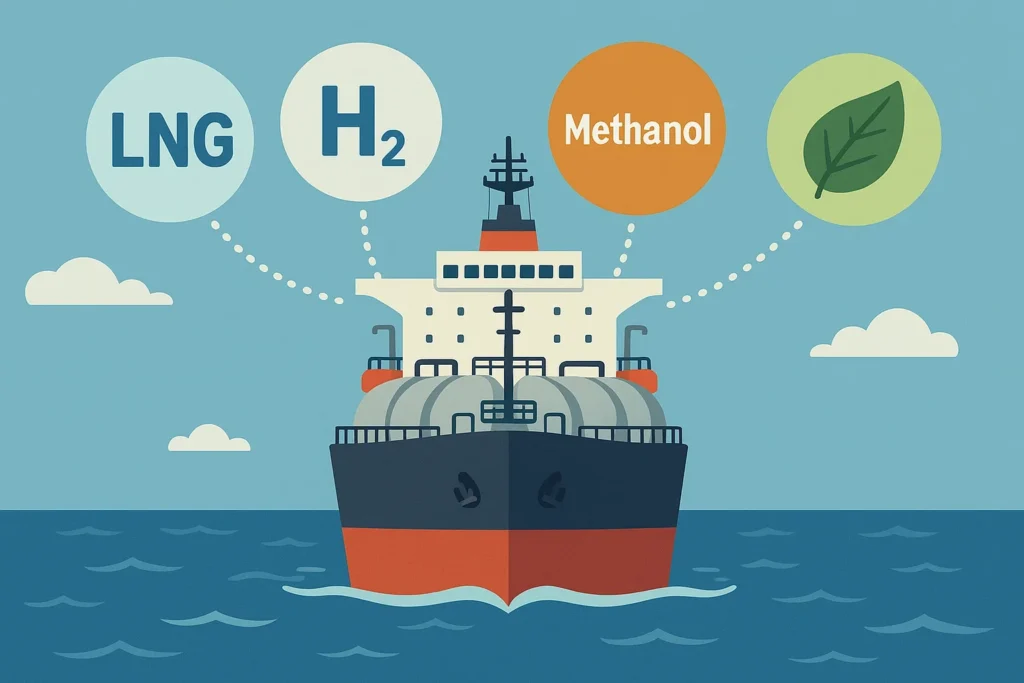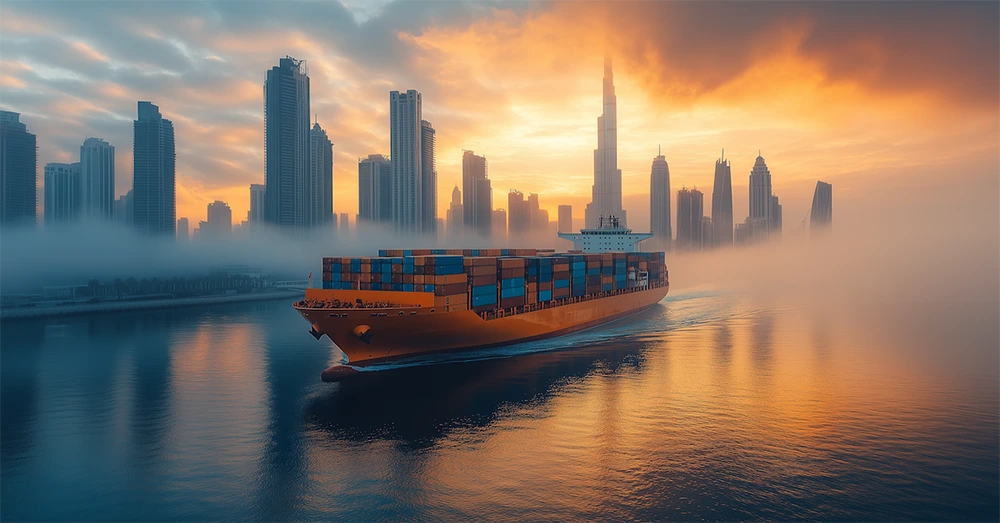Honest Realism Is Better Than Elegant Hypocrisy: Why Maritime’s Future Rests on Flexibility, Not Favorites

Daejin Lee, Global Head of Research at Fertistream Freight, shares his perspective on why flexibility, not fuel favoritism, will define shipping’s path to decarbonisation. He explores the commercial, regulatory, and geopolitical realities shaping maritime’s energy transition, and why a multi-fuel approach is the only practical way forward.
Fertistream Freight is a leading global shipping and logistics platform specialising in the transport of fertilisers and bulk commodities, with a focus on market insights and data-driven decision-making.
_______________
As global climate urgency intensifies and regulatory timelines tighten, the maritime industry finds itself at a defining crossroads. From Brussels to Beijing, policymakers are rolling out ambitious targets to reduce emissions.
But one increasingly clear truth is emerging from boardrooms and bunkering terminals alike: there is no single “green” fuel that can lead the way.
The shipping industry is turning toward a new paradigm — multi-fuel flexibility — as the only viable path forward in a fragmented and competitive global energy landscape.
The Green Race Is On — but Not Evenly Matched
Despite global commitments to decarbonise, clean fuel adoption in shipping is lagging. In theory, market forces should drive supply expansion, but in practice, shipping is losing the green fuel race — not because of a lack of demand, but due to limited access and intensifying competition from other sectors.
Aviation, for instance, has positioned itself as a front-runner in the biofuel market, backed by strong political momentum and clearer economic incentives. Agriculture, too, demands vast biomass inputs. As I noted recently in a panel discussion at the Emirates Shipping Congress on 6th May:
“In the biofuel market, aviation is a formidable competitor. Agriculture too. Shipping is further down the value chain — and that means we often wait for access, not lead it.”
This structural position places maritime at a commercial disadvantage. Unlike aviation or heavy industry, shipping’s fuel access is heavily dependent on infrastructure and production decisions made outside the sector. It’s no surprise that LNG has remained prominent — its success stems less from environmental superiority and more from the fact that the infrastructure already exists.
Innovation Isn’t Enough Without Infrastructure
While ammonia and green methanol generate headlines as next-generation marine fuels, their commercial adoption remains limited. Ammonia, in particular, holds long-term promise as a zero-carbon fuel, but hurdles abound: safety concerns, handling complexity, and lack of compatible engines are all barriers to near-term scaling.
Green methanol is gaining traction, especially in the container segment, but it, too, is hampered by production constraints and lifecycle emissions concerns.
Meanwhile, LNG — dismissed by some as a “transitional” fuel — is seeing renewed interest. Not because it’s perfect, but because it’s available, scalable, and compliant with FuelEU Maritime until at least 2035–2040.
This reinforces a central truth: energy transition isn’t about which fuel is most ideal on paper — it’s about what’s accessible at scale today and tomorrow.
Geography Shapes Strategy
Fuel access is also deeply geographical. Regions with abundant renewables or hydrocarbons — like the Middle East, Australia, the U.S., or China — can invest early and export widely. Others, including countries like Korea and Japan, which lack large-scale domestic energy production, face steep costs and strategic vulnerabilities.
As I’ve argued, “Energy must come from regions with abundant and affordable natural resources. For countries without this, the challenge is not just technical — it’s geopolitical.”
This uneven distribution means maritime decarbonisation is not just a technological problem — it’s a logistics and diplomacy problem, too.
The Scope 3 Trap: Not All Green Fuels Are Truly Clean
Even among the fuels heralded as solutions, not all are created equal. Most ammonia today is produced from fossil fuels. Burning it may emit no carbon, but if its production is carbon-intensive, we risk shifting emissions upstream rather than eliminating them.
Lifecycle emissions — Scope 3 in ESG terminology — matter. A marine fuel that’s “green” at the stack but carbon-heavy at the source does little to serve global goals.
Much like electric vehicles that rely on coal-powered grids, “green shipping” runs the risk of becoming a conceptual solution that underdelivers in practice if upstream emissions are ignored.
Timing Is Everything in a Cyclical Industry
Shipping has always been cyclical — and often contrarian. When asset values soar and financing flows freely, it’s usually a signal to proceed with caution.
Over the last three years, fuel uncertainty and regulatory ambiguity have inflated vessel prices. But as we enter the second half of 2025, we’re seeing a gradual stabilisation. Asset values are starting to reflect actual freight market fundamentals rather than speculative green premiums.
Investors and owners who rushed into “green-ready” vessels without clarity on fuel access or cost may now be reassessing those bets. Timing — grounded in data and market awareness — will remain one of the most valuable strategic tools in the energy transition.
Looking Forward: Realism Over Idealism
The shipping sector is no stranger to transformation — but we must resist the urge to chase single-fuel ideologies. The future is not hydrogen-only, or methanol-only, or LNG-only. It will be a strategic blend, shaped by vessel type, geography, regulation, and availability.
Progress will hinge not only on technology, but on coordinated infrastructure investment, smarter regulations that account for lifecycle emissions, and commercial incentives that reward first movers without penalising those adapting on a different timeline.
Conclusion: Flexibility Is Strategy
Decarbonisation in shipping will not be won by the fuel that sounds the greenest — it will be won by those who can adapt across multiple pathways, build resilient supply chains, and make commercially sound decisions in a highly volatile world.
Fuel access — not just innovation — will separate those who survive this transition from those who thrive in it.
Press Enquiries
We are eager to provide you with more information. Please don’t hesitate to reach out.
